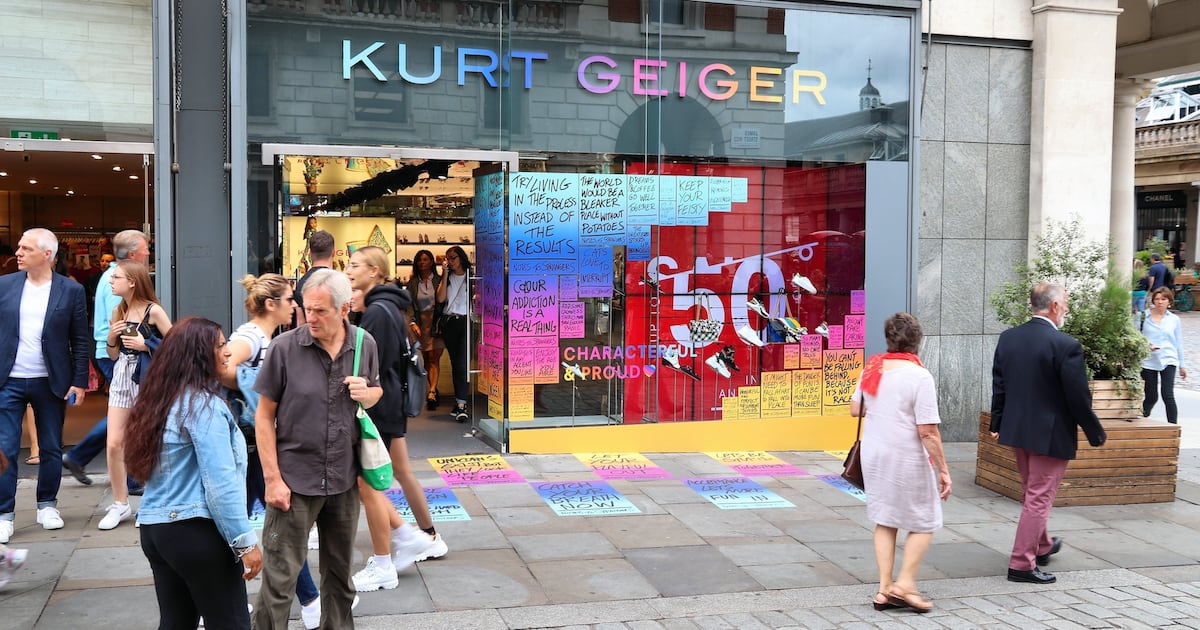Kurt Geiger increased sales by nearly 10 percent last year as the footwear and handbag retailer said it benefited from fashion fans switching to its more affordable luxuries during the cost of living crisis.
The company said its revenues had risen by 9.4 percent in the year to the end of January 2024. Sales of handbags boomed after it cut prices by 5 percent compared with three years ago, just as many luxury brands had upped price tags.
The British retailerâs revenues were also helped by its expansion in the US, where Kurt Geiger is now sported by the likes of Kylie Jenner, Jennifer Lopez and Paris Hilton.
Its sales have risen despite a tough time for the wider clothing and footwear market, particularly for luxury brands, as household income has been squeezed by the cost of living crisis.
Neil Clifford, the chief executive of Kurt Geiger, said underlying profits rose 34 percent to £40.4 million on sales of nearly £361 million â putting the group back on a par with its pre-Covid performance â and he expects further growth in this financial year.
He said: âThe strategy of increasing prices when consumers were having a tough time to take the same sales from fewer people, I donât think that has worked [for others]. We have put a lot of effort and creativity into our product but are at a price point that is lower than all our competitors and I think that is working.â
Clifford said fashion items had to be more affordable as they were now facing increased competition from other options â such as travel, events or luxury food. Kurt Geigerâs handbags range from £59 to £289.
âEveryone wants to look wonderful but not everyone earns £100,000 a year or more and maybe if they can afford it maybe they donât want to, they would rather go on holiday,â he said.
He said the focus on affordable luxuries, with everyday prices dropped but fewer discount events, had helped Kurt Geiger sell 50 percent more sandals than last year â despite the gloomy summer in Europe â while handbag sales were up 45 percent.
That growth comes as many luxury brands, including Mulberry, Burberry, Gucci and Yves Saint Laurent, have seen shoppers cut back their spending. Their typical customer base â âaspirationalâ shoppers able to occasionally splash out on an expensive item â have been forced to prioritise essentials such as mortgage payments and heating bills which have risen.
However, Pippa Stephens, senior analyst at GlobalData, said Kurt Geiger was more likely to have benefited from shoppers trading up from high street brands rather than trading down from designer labels because of a trend towards investment dressing â wanting items that last longer and could be traded on resale sites â rather than more disposable fashion.
âPremium high street players have been faring quite well as people are trading up from the mass market and trying to find better value for money,â she said.
Stephens added that Kurt Geigerâs growth was also being fuelled by international expansion.
The company, which is owned by private equity firm Cinven, is investing more in marketing, including hiring model and actor Emily Ratajkowski to front its marketing campaign.
The group has just one company-owned store in the US â in Orlando â but plans to open four more there this year, including in New York and Los Angeles. It has a long-term target to open 50 stores in the US.
No new stores are expected to open in the UK, where Kurt Geiger has 58 outlets including a site on Londonâs Oxford Street which opened a year ago.
Clifford said sales of Americana-themed denim bags and footwear had also done well, thanks to the influence of Beyoncé and Taylor Swift.
By Sarah Butler
Learn more:
The Return of the Flip-Flop
The 2000s staple is back, this time with a luxury twist. Its resurgence is evidence that the old school playbook for starting trends can still work in 2024.

